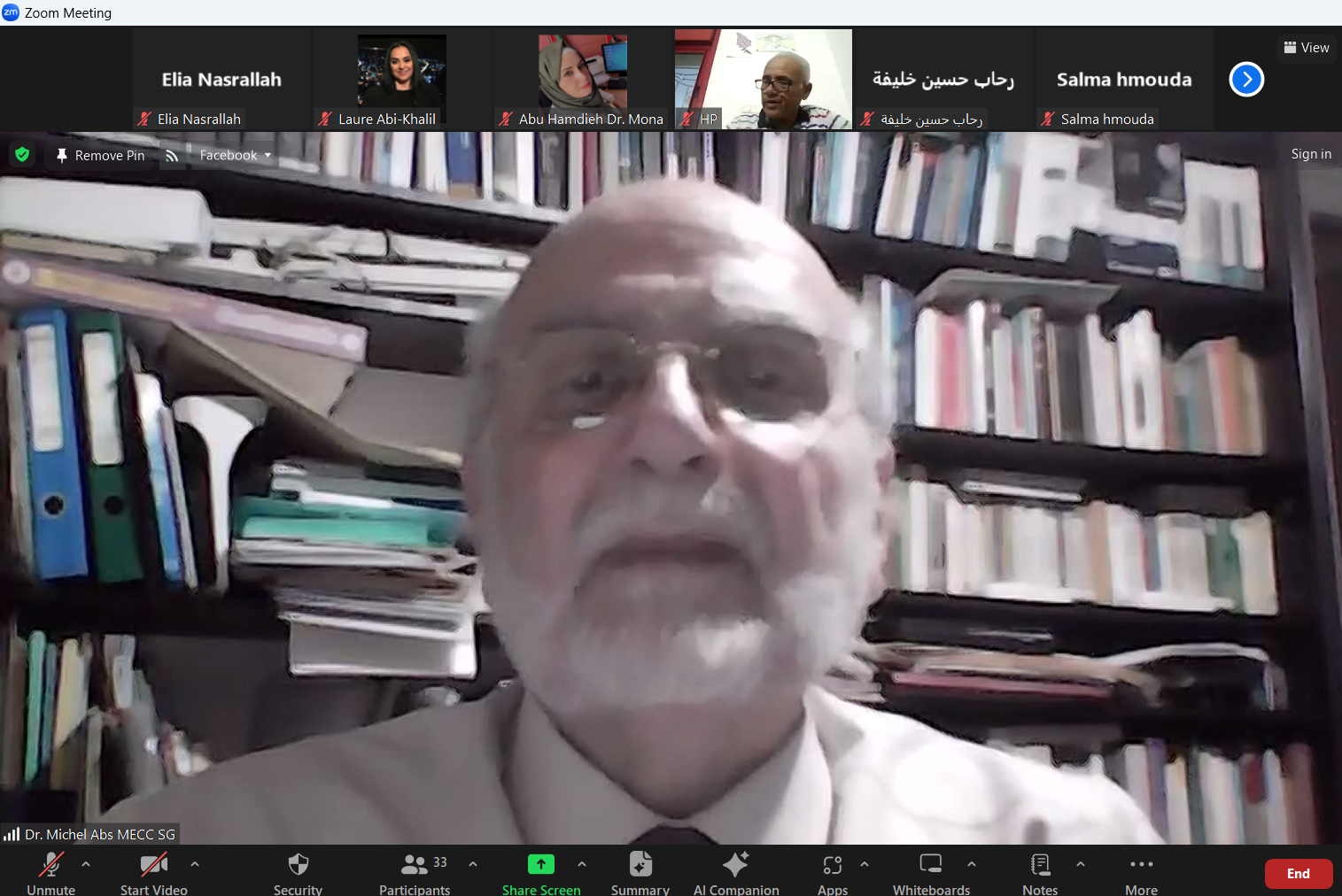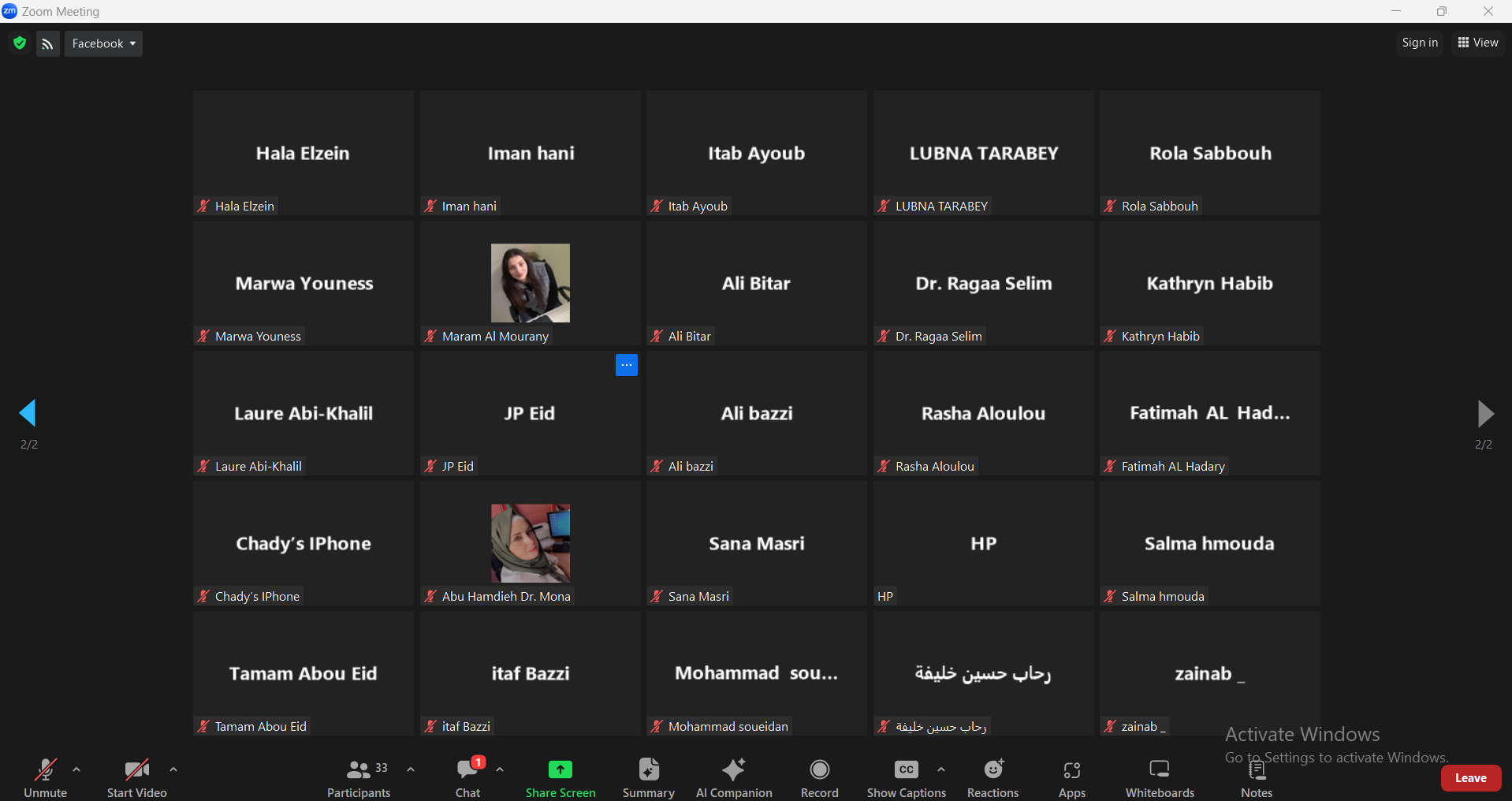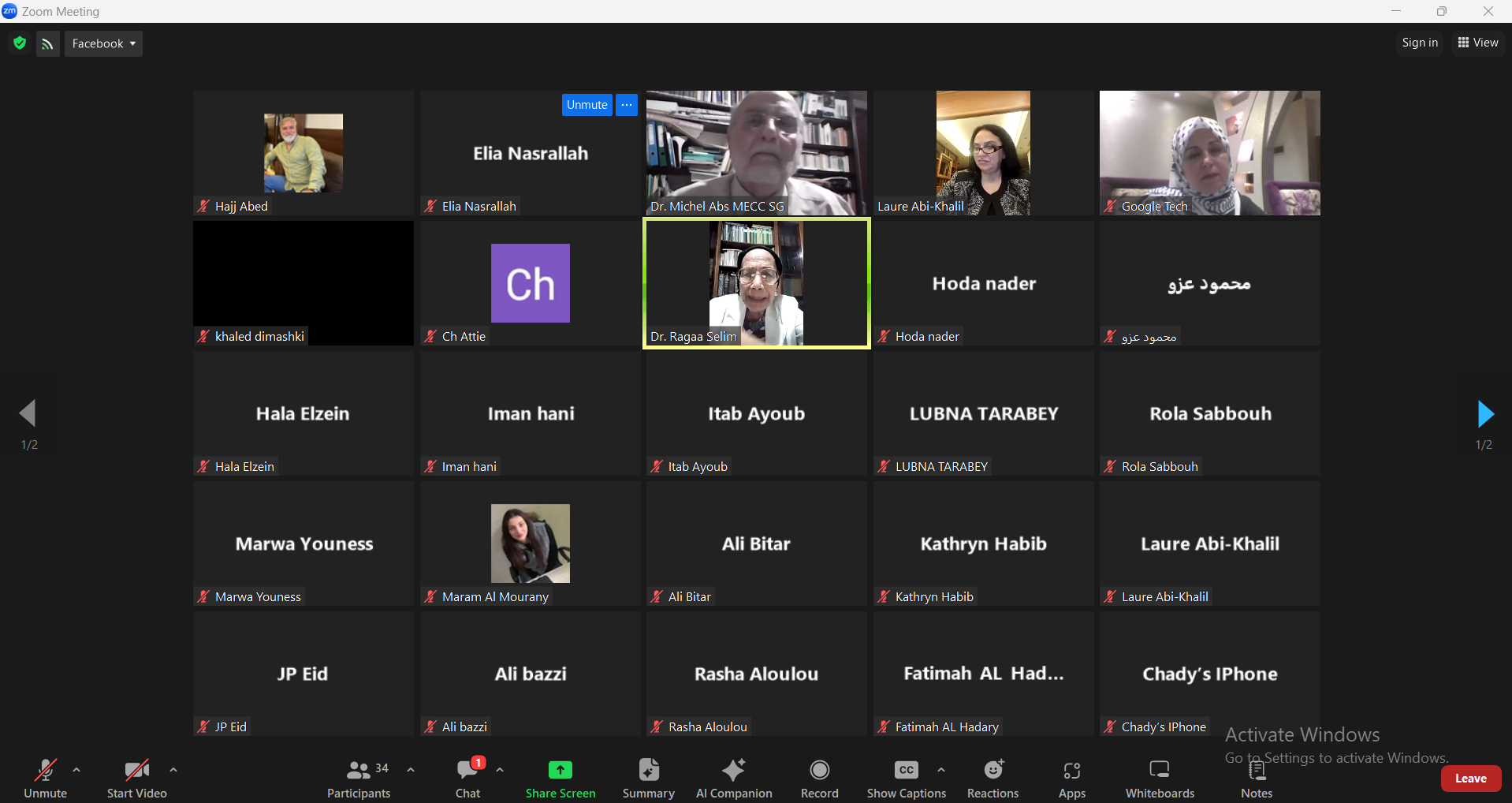On the commemoration of the kidnapping of the two Archbishops of Aleppo, Metropolitan Boulos Yaziji and Metropolitan Gregorios Youhanna Ibrahim
On the occasion of the "The Ecumenical Day for the Abducted and the Forcibly Absented"
MECC holds a Webinar About “Wars, Abduction, Absence, and Ways to Reduce Harm”
The Secretary General Dr. Michel Abs: abduction is still rampant in many places in the world and there is no one to deter the perpetrators, because their actions are only part of the crime that humanity has not succeeded, and may not succeed, to curb
On the commemoration of the kidnapping of the two Archbishops of Aleppo, Metropolitan Boulos Yaziji and Metropolitan Gregorios Youhanna Ibrahim, and on the commemoration of the "The Ecumenical Day for the Abducted and the Forcibly Absented", which the Middle East Council of Churches (MECC) had launched and designated on 22 April of each year, MECC held its monthly webinar, entitled “Wars, Abduction, Absence, and Ways to Reduce Harm”, on Thursday 25 April 2024. The webinar took place with the participation of expert speakers from various fields and the presence of a group of specialists, university students, and interested attendees in the topic at hand.
The webinar, which was broadcast live on the MECC Facebook page, included two interventions, moderated by Dr. Laure Abi Khalil, who spoke in her opening speech about the cases of violence in the region amidst the difficult circumstances it is going through, denouncing this bitter reality and stressing the role of states and governments in the context of this issue.
The webinar began with a speech delivered by the Secretary General of the Middle East Council of Churches Dr. Michel Abs, entitled “Abduction: A Jungle in the Heart of the City”, and in which he said “For decades, our country has been experiencing abduction and disappearances on a large scale. From the abduction and slaughter of Armenians, Syriacs, and other components of this nation, to the abduction of Palestinians and the long-term arbitrary arrests - which is equivalent to abduction - that they experience, from the Nakba to the Gaza war, to the abductions that took place during the wars in Lebanon, Iraq, and Syria, including the abduction of the Archbishops of Aleppo, whose abduction we remembered this week for the eleventh year, through the absence of the Imam dear to the hearts of the Lebanese, to everything that is happening in our country, all of this makes us live in a forest, and everyone knows who is behind all this, the spreaders of sedition and the dispersers of peoples.”
He added “The laws dealing with abduction and its derivatives have evolved significantly in recent years, and the number and voices of activists in this field have increased, but abduction is still rampant in many places in the world and there is no one to deter the perpetrators, because their actions are only part of the crime that humanity has not succeeded, and may not succeed, to curb. It is necessary to continue raising awareness and understanding of the consequences of abduction, through media and educational programs, in the hope that the coming days, thanks to this awareness, will bring us a light that illuminates the consciences of the perpetrators and discourages them from the sin and harm committed by their hands, to people who did not cause them any harm.”
Afterwards, the first intervention started under the title “Abduction and Killing based on Identity... Gaza as an Example,” with Prof. Dr. Abd Al-Rahman Al-Maghrabi, Secretary-General of the Palestinian Union of Historians and Archaeologists. In his intervention, Prof. Dr. Abd Al-Rahman presented an overview about the Gaza Strip, highlighting its most prominent historical stations and geographical components. He also talked about the difficult circumstances that Gaza is going through, as well as the issue of killing and kidnapping, in addition to the suffering of the Palestinian people in light of all the wars and conflicts they are witnessing.
Then, the second intervention revolved around “Reparations in the Iraqi Experience and Focus on Compensatory Justice: An Unilateral Horizon for Transitional Justice,” with Dr. Mahmoud Ezzo Hamdo, Peace Building Center - University of Mosul. In his intervention, Dr. Mahmoud highlighted the different stages of Iraq's history, speaking about the humanitarian violations to which the Iraqi people are exposed to in the country. He also talked about the issue of mass massacres in the Iraqi governorates, in addition to the law of compensation for the affected people and the laws of the victims.
The webinar ended with a session for questions and discussion among the participants, where they exchanged opinions and experiences, each one according to his and her specialty and field of work. In addition, the MECC Secretary General Dr. Michel Abs delivered a final word in which he condemned the phenomenon of violence and kidnapping and spoke about "The Ecumenical Day for the Abducted and the Forcibly Absented".
Noting that this webinar comes as part of the monthly seminar which MECC is organizing within the framework of the “Human Dignity Project” - “Dialogue and Social Cohesion-Social Capital Rehabilitation”, which MECC is implementing consecutively.













